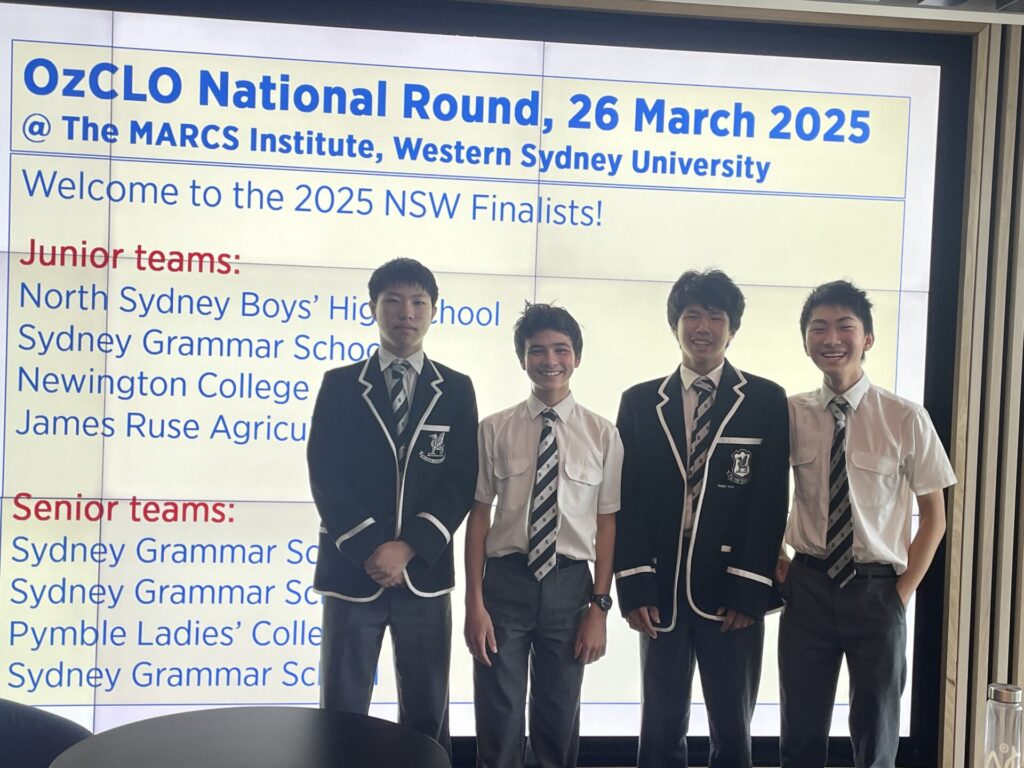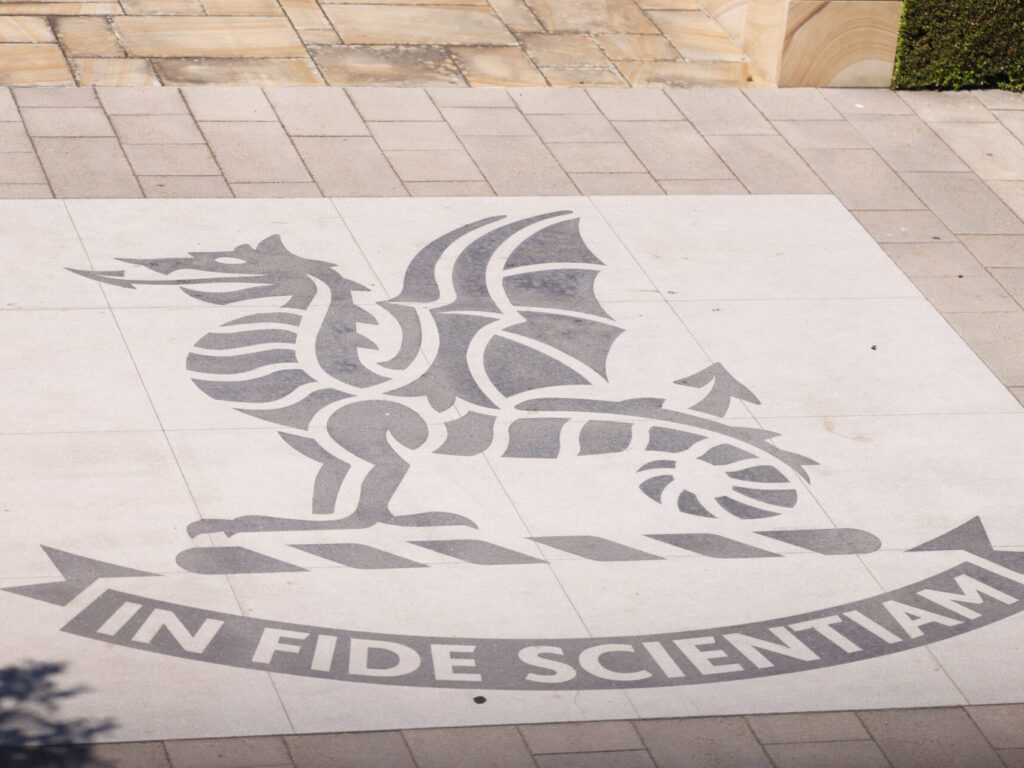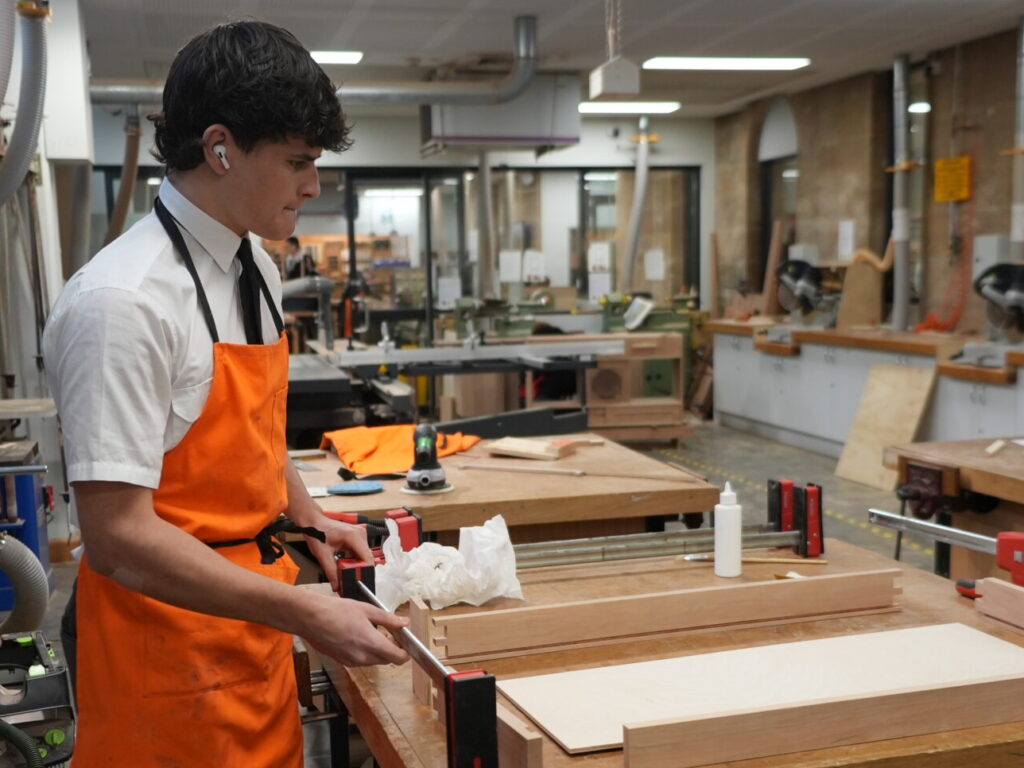Brainpower blooms at Newington Scholars Club
Working with mentors from universities, chatting to other like-minded students, or grappling with the ‘big issues’, such as current rising sea levels – these are just some of the things Scholars Club patrons might be doing on any given week at Newington College.
The Scholars Club, which is run by Newington’s Inclusive Learning Department, is an interdisciplinary initiative aimed at extending students academically across all subject areas, specifically by homing in on their individual strengths and talents.
Meeting twice a week in Room 1 in the Pyke Centre, 70 students from Years 7–10 are nurtured in their academic talents and passions – from the number-crunching to code-breaking or even poetry composition – and are supported by Scholars Club to reach their full potential in whatever their special area of interest may be.
‘It’s basically a bit of a training ground for our high-potential students, those who have been identified as excelling or being highly capable in certain areas, and we strongly encourage attendance,’ explains Ms Catherine Phoon, Head of Inclusive Learning.
‘We work to promote self-esteem, self-awareness and self-efficacy. As well as being an inclusive space for these students to connect, Scholars Club offers vast enrichment opportunities. Many of our students are working to extend themselves by participating in intellectually rigorous competition such as the Da Vinci Decathlon.’
The Da Vinci Decathlon, which is just one of many national and international extension competitions Newington enters each year, requires participants to complete challenges across 10 learning disciplines. These include engineering, mathematics and chess, code-breaking, art and poetry, science, English, ideation, creative producers, cartography and legacy. The Da Vinci Decathlon places an emphasis on creativity, collaboration and critical thinking.

Often working in tandem with individual departments across the College, all of which organise participation in their own subject-specific competitions, the Inclusive Learning department provides access to a wide range of interest-based competitions for deep enrichment purposes. Scholars Club students are welcome to participate in as many of the challenges as they wish, enhancing their knowledge and honing problem-solving skills across a broad spectrum of subject areas.
The Bebras Computational Thinking Challenge, which was held during Term 1 and involved Newington entrants from Years 7–10, saw five teams (12 students) earn an Excellence award, meaning they achieved 100%. Meanwhile, six teams (14 students) achieved a High Distinction; two teams (five students) received a Distinction; three students received a Merit award; and one student received a Participation. Also in Term 1, the Newington team participating in the Australian Computational and Linguistics Olympiad (OzClo) was successful in reaching the second round.
Last year, Newington students took second place at the UNSW School of Mathematics Competition, which is designed to assess mathematical insight and ingenuity.
Term 2 of 2025 has been largely dedicated to the Future Problem Solving Program, an international comprehensive research-based academic program that gets brains working on problem solving strategies, collaboration, critical and creative thinking, and effective communication through real-world issue and scenarios.
‘Currently we have 13 students from Years 7–9 participating in the program,’ says Mrs Marianna Keogh, an Inclusive Learning teacher who manages the Scholars Club.
‘It’s quite extensive in that it is designed to help students develop expertise in a certain area, and then they are faced with a problem scenario that they need to solve.
‘The problems mainly fall into the fields of science, economics or agriculture. Each student is given the same scenario, and they need to respond by finding a solution that best suits the problem, the environment, the stakeholders and so on. It really promotes the importance of critical and creative thinking.’
In Term 3, students will practice for GATEway8, a competition that incorporates eight disciplines based on developmental psychologist Howard Gardner’s multiple intelligences, which will be held in August. During Term 4, Scholars Club members will focus their brainpower and energy on prep for the 2026 Da Vinci Decathlon, which will be held in April and will see Newington students competing against 80 other independent and state schools.
Whether students elect to participate in these competitions or not, the most important thing, Ms Phoon says, is that they are extending themselves.
‘Pupils are not just high-potential for the one hour a day that they attend a particular class, or when they participate in a competition – they should be engaging their brains all the time. All day, every day,’ she says.
‘They come to us with a certain ability and it’s up to us at Newington to be a part of their nurturing and growth. We want to feed their talent and really target support to where it is needed most.’



